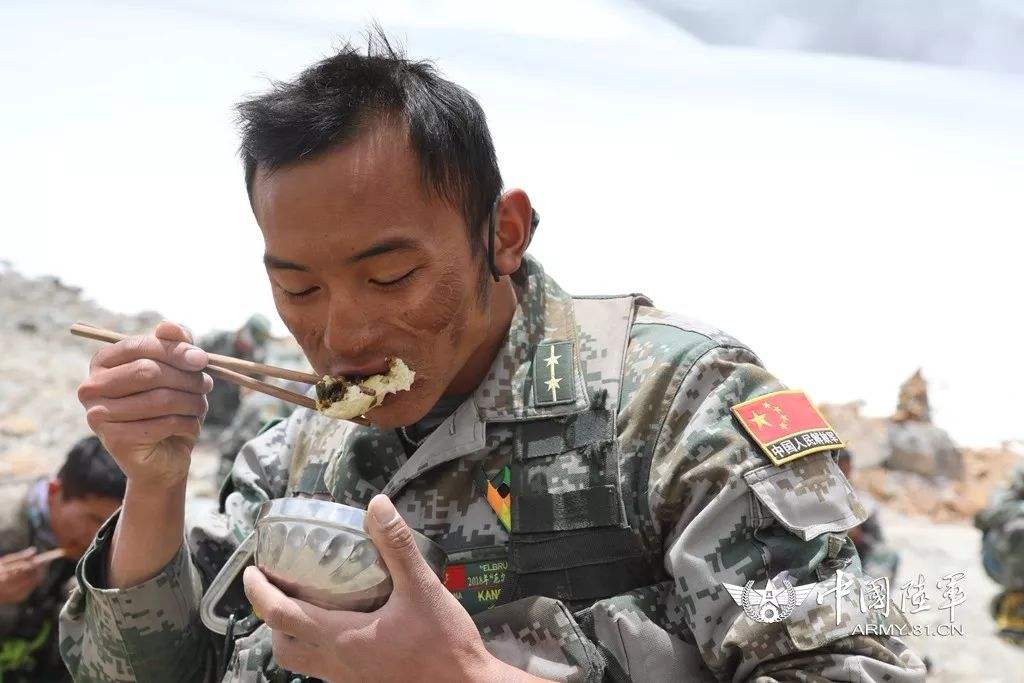
By Cai Chuang
Have you ever measured how long you could finish a meal? For ordinary people, this seems a bit senseless. But for the military, the eating speed is not an insignificant topic, but an important issue that is related to the formation of combat power and can even affect the outcome of war.
There was a discussion on a China's BBS under the theme of “How long it takes you to eat in the military canteen?” There were many responses, including 3, 5, 10, 15 and 30 minutes.
There is no clear stipulation in the Chinese military’s rules and regulations as to how long it should take to have a meal. However, one thing is certain: eating fast is a manifestation of the army's strong sense of time and high level of combat readiness.
The key function of the military is to fight. The battle may starts at any time, so meals are usually not taken according to schedule. Speed is precious in wartime, and accordingly, eating should be time-sensitive.
In those past days when the Chinese Red Army soldiers walked over 120 kilometers within one day and night, how could they have time to make a fire to cook and take their time in eating? Enemy planes bombarded them indiscriminately, and enemies on the ground attacked them wildly. Even taking a sip of water was difficult, not to mention sitting down and enjoying a big meal.
If the soldiers didn’t develop the concept of “eating is a time battle,” how could they adapt to the ferocious, fast-changing battlefield environment?
Some say that the pace of pedestrians on the street reflects the nationals' concept of time to some extent. In this sense, the “speed of eating” reflects the combat readiness of officers and soldiers. For real military members, their daily lives of eating, drinking, excreting, urinating, and sleeping are all related to fighting.
Su Yu, known as China's ever-victorious general, insisted on surveying the terrain, reading maps, and putting his clothes and socks neatly every night for many years after the war ended. The reason was that he always adhered to a belief: only if you can keep combat-ready during the whole night can you be a true soldier.
In times of war, “marching and fighting, fighting and marching” and “being ready for combat anytime” were always part of the daily routine. If you want to fill your stomach or even save your life, you must eat a little bit simpler and faster. Today, there is neither extra-urgent marching nor fierce war fighting. Nevertheless, we shall expect from military members that they eat fast, which reflects a sense of “impending doom” as well as their fighting spirit. Imagine if soldiers would procrastinate in eating and always make a mess on the table or if there comes an emergency mission, how could they rush to the battlefield with high morale and fight to the end with full physical strength, when they are still hungry?
However, some of Chinese PLA officers and soldiers are now used to “four dishes and one soup” in the field training or live-fire exercises, and they cannot adapt themselves to the individual self-heating food, which is regarded as inadequate in terms of portion size and taste. As a result, some soldiers even bring their own snacks. Besides, certain troops are unfamiliar and unaccustomed to the use of self-propelled cooking vehicles, cooking trailers, and field maintenance equipment. These not only violate the exercise rules, but may also deliver a heavy loss in wartime.
The Chinese military should incorporate “eating” into the whole process of live-fire military exercise, so that officers and soldiers can get used to “eating meals while achieving combat readiness” and eating fast and well in wartime, in order to win at last.
Disclaimer: The author is Cai Chuang. The article was published on the PLA Daily on November 28. It is translated from Chinese into English and edited by China Military online.









